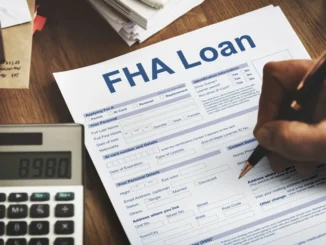
The Community Home Lenders of America (CHLA) has compiled a new document it is calling the “consumer mortgage bill of rights,” based on a series of different actions and proposals it has made to companies and federal agencies including the Consumer Financial Protection Bureau (CFPB), the Federal Housing Administration (FHA), the Federal Housing Finance Agency (FHFA) and Intercontinental Exchange (ICE) since 2021.
“Perhaps more than any other financial product, mortgages offer a wide array of specific consumer protections including RESPA, TILA, TRID, LO Comp, HOEPA, servicing rules, and many others,” CHLA said in a statement regarding the document.
“These rules apply whether the lender is a bank or a non-bank; although, consumers have significantly more protections with non-banks in the realm of licensing requirements and CFPB supervision. Despite these protections, there are still several gaps and loopholes that must be closed, as outlined in this Consumer Mortgage Bill of Rights,” CHLA added.
The document includes seven items, included in full below. They begin with the outlined right as interpreted by CHLA, an underlying communication the organization sent that outlined that right and a recommended action to put it into practice:
The Right to Say No to Abusive Trigger Lead Solicitations. Consumers should be in control of deciding whether to receive dozens of solicitations after mortgage credit pulls.
CHLA: November 2022 Letter to CFPB and July 2023 Letter to Congress.
ACTION: The FTC should create a true opt-in option when a credit report is pulled.
The Right to Robust Competition in Mortgage Services Market. One company should not have quasi-monopoly pricing power or be able to utilize practices like tying.
CHLA: June 2022 Letter to FTC/DOJ and February 2023 Letter to ICE.
ACTION: The FTC should continue its opposition to the ICE purchase of Black Knight.
The Right to Affordable Credit Report Pricing. Last year FICO used its monopoly status to raise credit report prices 400% while simultaneously offering sweetheart deals for a few large lenders.
CHLA: November 2022 Letter to FHA and FHFA asking them to bar these price hikes.
ACTION: FICO should rescind the 400% price increase and price all lenders the same.
The Right to Robust Dual Compensation Consumer Protections. Loan originators acting as realtors should be licensed, free of conflicts of interest, and with full disclosure.
CHLA: March 2023 Letter to CFPB recommending these consumer protections.
ACTION: The CFPB and/or states should mandate the consumer protections above.
The Right to Obtain a Mortgage Through a Qualified Mortgage Loan Originator. Loan originators at banks are exempt from basic professional qualifications requirements including the SAFE Act test, independent background checks, and continuing education.
CHLA: October 2021 Letter to CFPB on SAFE Act parity.
ACTION: The CFPB should require all loan originators to meet these requirements.
The Right to Have Pricing Parity Requirements Apply to All Loan Originators. Loan originators at mortgage banks are prohibited from varying their loan fee for different borrowers; however, a loophole allows mortgage brokers to use different channels to vary loan fees.
ACTION: The CFPB should close the LO Comp loophole for mortgage brokers.
The Right for All Borrowers to End MI Premiums When Loans Hit 78% LTV. The HPA mandates an end to mortgage premiums for most loans that pay down to 78% LTV.
CHLA: May 2022 Sign-on Letter Calling for an end to FHA Life of Loan Premiums. ACTION: FHA should end Life of Loan Premiums (put in place in June 2013).
The accompanying CHLA letters can be viewed at the organization’s website.
While there is a fair amount of protection for consumers engaging in obtaining mortgage financing, there is always room for improvement according to Scott Olson, executive director of the CHLA.
“Consumers obtaining a mortgage loan enjoy more consumer protection than with any other financial product – however we can do better,” he said. “CHLA’s ‘Consumer Mortgage Bill of Right’s’ identifies the most common mortgage abuses along with effective, practical solutions to provide full protections.”



